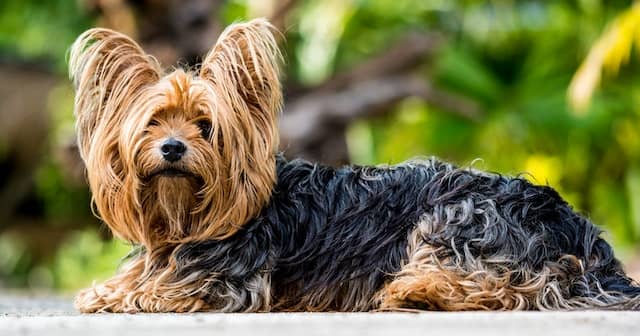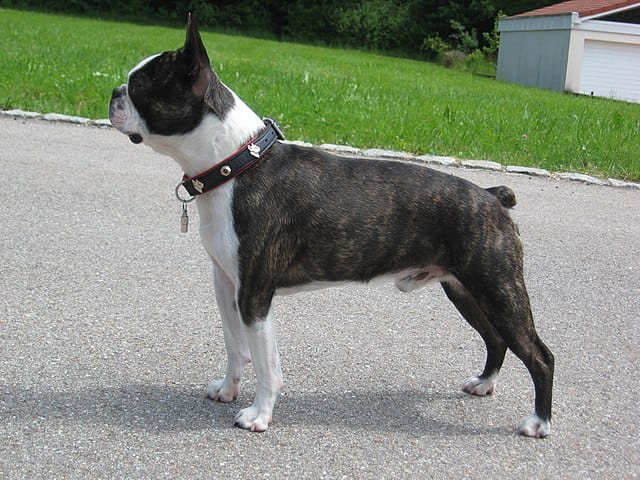Basenji : Health Issues, Temperament, Lifespan. You Need To Know
Are you curious about Basenjis? In this article, we will provide you with essential information about Basenjis, including their health issues, temperament, and lifespan. Whether you are considering getting a Basenji as a pet or just want to learn more about this fascinating breed, we’ve got you covered. So, let’s jump right in and discover what you need to know about Basenjis!
Health Issues
Common health issues in Basenjis
When it comes to health issues, Basenjis are generally a relatively healthy breed. However, like any other dog breed, they are prone to certain health conditions. One common health issue in Basenjis is hip dysplasia. This is a condition where the hip joint is malformed, leading to painful and debilitating arthritis. Another common issue is progressive retinal atrophy (PRA), which can cause blindness in dogs. Basenjis are also known to be susceptible to certain types of cancer, including lymphoma and hemangiosarcoma.
Potential genetic conditions
Basenjis are known to be carriers of certain genetic conditions that can be passed on to their offspring. One such condition is Fanconi syndrome, a rare kidney disorder that affects the ability to reabsorb electrolytes and nutrients. This can lead to dehydration, malnutrition, and organ damage if left untreated. Basenjis can also carry a gene for pyruvate kinase deficiency, an inherited hemolytic anemia that causes the red blood cells to break down prematurely. It is important for breeders to conduct genetic testing to identify carriers and prevent the passing of these conditions to future generations.
Allergies and skin problems
Basenjis are prone to allergies and skin problems, which can cause discomfort and itchiness. They can develop allergies to certain foods, environmental triggers such as pollen or dust mites, or even certain grooming products. Skin problems such as dermatitis and hot spots can also occur. It is important to provide a balanced and nutritious diet for your Basenji, avoid exposing them to allergens, and use hypoallergenic grooming products to help mitigate these issues. Regular grooming and maintaining good hygiene can also play a significant role in preventing skin problems.
Eye problems
Basenjis are known to be susceptible to certain eye problems. One of the most common eye conditions in Basenjis is progressive retinal atrophy (PRA), as mentioned earlier. PRA causes a progressive deterioration of the photoreceptor cells in the retina, eventually leading to blindness. Basenjis may also develop cataracts, a clouding of the lens that can impair vision. Regular eye examinations by a veterinarian and early detection can help manage and treat these conditions effectively.
Digestive issues
Basenjis can sometimes experience digestive issues, including gastrointestinal sensitivities and food allergies. They may have a sensitive stomach, which can result in vomiting, diarrhea, or overall digestive discomfort. It is important to provide a well-balanced and easily digestible diet for your Basenji, avoiding any known food allergens or ingredients that can trigger sensitivities. Regular exercise and mental stimulation can also help promote a healthy digestive system.
Temperament
Independent nature
Basenjis are known for their independent nature. They were bred as hunting dogs in Africa, where they needed to make independent decisions in the field. As a result, they have retained their independent mindset and can sometimes be a bit stubborn. While this independent nature can be endearing, it also means that Basenjis may not always be the most obedient breed. They have a mind of their own and may choose to follow their instincts rather than your commands.
Intelligence and curiosity
Despite their independent nature, Basenjis are highly intelligent and curious dogs. They are quick learners and enjoy mental challenges. This intelligence, combined with their curiosity, can sometimes lead them to get into mischief if they are not provided with enough mental stimulation. It is important to keep your Basenji engaged with interactive toys, puzzles, and training sessions to satisfy their mental needs and prevent boredom.
Reserved with strangers
Basenjis are generally reserved and aloof with strangers. While they can form strong bonds with their family members, they may take some time to warm up to new people. This reserved nature is a characteristic of their breed and should not be mistaken for aggression. It is important to socialize your Basenji from an early age, exposing them to different people and experiences to help them become more comfortable and accepting of new individuals.
Loyalty and affection
Once a Basenji forms a bond with their human family, they are incredibly loyal and affectionate. They are known to be loving companions who enjoy spending time with their loved ones. While they may not be as overtly affectionate as some other breeds, they often show their love through gentle nudges, leaning against you, or simply staying close by your side. Basenjis appreciate quality time together and thrive on the love and attention they receive from their owners.
Potential for aggression
While Basenjis are generally well-mannered and friendly, they do have the potential for aggression if not properly trained and socialized. Their independent nature and strong prey drive can make them prone to chasing small animals or exhibiting dominance towards other dogs. Early socialization, obedience training, and consistent leadership are crucial in shaping a well-adjusted and non-aggressive Basenji. It is important to establish yourself as the pack leader and provide clear boundaries and rules to prevent any aggressive behaviors from developing.
Lifespan
Average lifespan of Basenjis
On average, Basenjis have a lifespan of around 12 to 16 years. However, it is important to note that every dog is an individual and their lifespan can be influenced by various factors such as genetics, overall health, diet, exercise, and living conditions. Proper care and attention to their specific needs can help increase their chances of living a long and healthy life.
Factors affecting lifespan
Several factors can influence the lifespan of a Basenji. One of the most significant factors is genetics. If a Basenji comes from a line with a history of health issues, they may be more prone to developing certain conditions that can impact their lifespan. Maintaining a healthy diet and weight, regular exercise, and appropriate veterinary care are also essential factors in preserving a Basenji’s overall health and extending their lifespan.
Tips for increasing lifespan
To increase the lifespan of your Basenji, here are some helpful tips to consider:
- Balanced diet: Feed your Basenji a high-quality, balanced diet that meets their nutritional needs. Avoid overfeeding and maintain a healthy weight to prevent obesity-related health issues.
- Regular exercise: Provide daily exercise to keep your Basenji physically fit and mentally stimulated. Engage them in activities such as walks, runs, or interactive play sessions to prevent obesity and promote overall well-being.
- Regular veterinary care: Schedule regular check-ups with your veterinarian to monitor your Basenji’s health, catch any potential issues early, and ensure they are up to date with vaccinations and preventative treatments.
- Dental care: Maintain good dental hygiene by brushing your Basenji’s teeth regularly and providing appropriate chew toys to keep their teeth clean and healthy. Poor dental health can lead to other health issues and can impact their overall lifespan.
- Mental stimulation: Engage your Basenji’s mind through puzzle toys, obedience training, and interactive play. Mental stimulation helps prevent boredom and promotes their overall well-being.
- Socialization: Expose your Basenji to various people, animals, and environments from a young age to promote proper socialization and reduce anxiety or fear-related issues later in life.
- Stress management: Minimize stress in your Basenji’s life by providing a calm and stable environment. Avoid sudden changes, excessive noise, or situations that may cause fear or anxiety.
By following these tips and providing the necessary care and attention, you can help increase your Basenji’s lifespan and ensure they live a happy and healthy life by your side.
In conclusion, understanding the health issues, temperament, and lifespan of Basenjis is essential for any prospective or current owner. By knowing what to expect and how to care for them properly, you can provide the best possible life for your Basenji and enjoy a long-lasting bond with your furry companion. Remember to always consult with a veterinarian for personalized advice and guidance specific to your Basenji’s needs.










